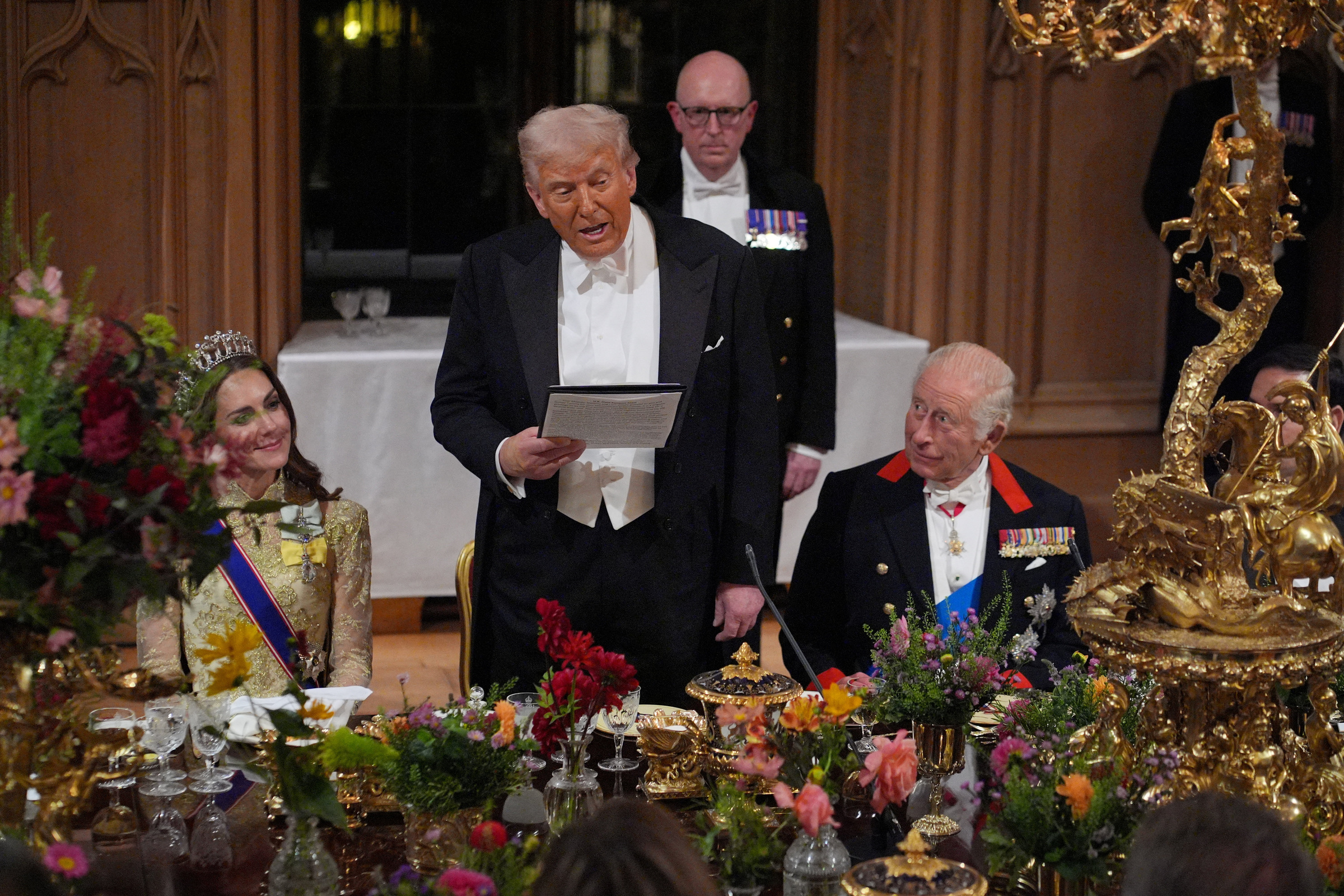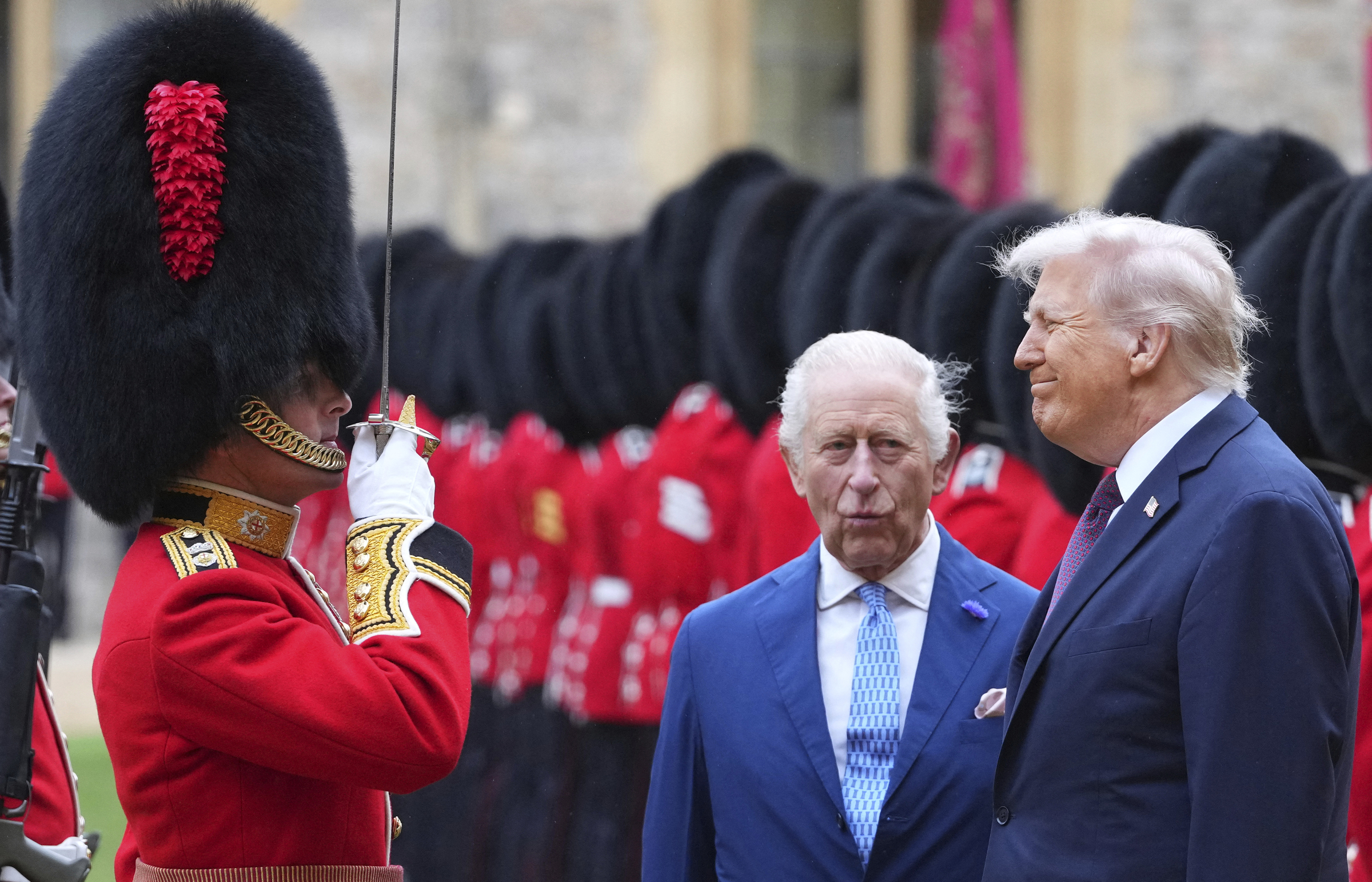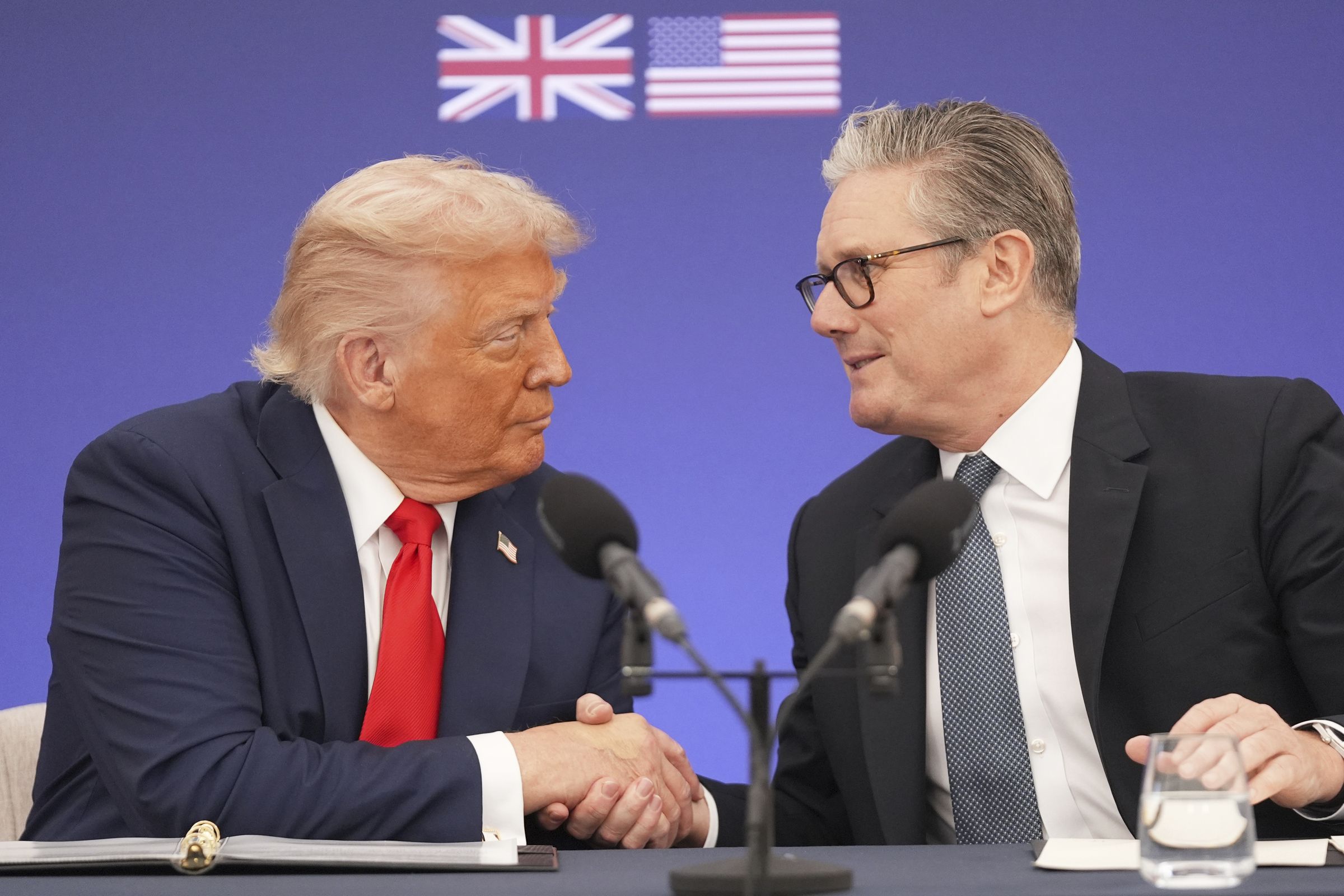President Donald Trump's state visit to the UK came at a delicate time for Prime Minister Keir Starmer. Days before Trump's arrival in London, Peter Mandelson, the UK ambassador to Washington, was dismissed over his ties to the disgraced financier Jeffrey Epstein.
The prime minister then had to manage the fallout from this decision, which drew attention to Trump's past relationship with Epstein. Trump said he had ended his friendship with Epstein in the mid-2000s and hadn't spoken to him for years before Epstein's death in prison in 2019.
The UK government feared that any misstep during Trump's visit could jeopardize the relationship between the two countries and even Starmer's premiership. They were determined to avoid anything that could disrupt the visit.
 |
President Donald Trump speaks at a banquet at Windsor Castle on 17/9. Photo: Reuters |
President Donald Trump speaks at a banquet at Windsor Castle on 17/9. Photo: Reuters
When activists projected images of Trump and Epstein onto Windsor Castle the night before his arrival, they were promptly arrested. The president was also kept at a safe distance from the British public to minimize the risk of encountering protests against his visit or US policies.
Furthermore, the British Royal Family welcomed Trump and First Lady Melania with ceremonies described by the media as "unprecedented." After Marine One landed at Windsor Castle, the Trumps received a grand welcome from King Charles and Queen Camilla, as well as Prince William and Princess Catherine.
The welcome also included 1,300 military personnel and a flypast by the Red Arrows. Trump expressed his pleasure and praised the "unbreakable" relationship between the US and the UK during a state banquet at Windsor Castle on 17/9.
But as the visit concluded, questions arose about what the UK actually gained from the warm reception.
Starmer's biggest touted achievement was a $203 billion investment from American companies, dubbed the "Technology Prosperity Deal," signed after talks with Trump. Nearly $42 billion of this came from US tech giants, aimed at bolstering the UK's AI and technology infrastructure. More than $121 billion represented investments by Blackstone, the private equity firm, over the next decade. The UK government claimed these investments would create about 7,600 jobs.
However, analysts noted that most of these investments had been previously announced and were repackaged into a single deal for the occasion of Trump's visit.
"There are big questions about some of the specifics of the deal, including what concessions the UK had to make to secure this technological tie-up," said Olivia O'Sullivan, director of the UK in the World program at Chatham House.
Nick Clegg, former UK deputy prime minister and onetime top policy executive at Meta, warned that the tech deal was merely "crumbs from the Silicon Valley table."
"Technologically, we are a bit like a client state of the US. In a way, this tech agreement is just another demonstration of the UK clinging to Uncle Sam’s coattails," Clegg said on 17/9.
 |
President Donald Trump (right) and King Charles III (center) inspect the honor guard at Windsor Castle on 17/9. Photo: AFP |
President Donald Trump (right) and King Charles III (center) inspect the honor guard at Windsor Castle on 17/9. Photo: AFP
Building the AI infrastructure, as Nvidia CEO Jensen Huang, who attended the banquet with Trump, described, would require the UK to increase its energy supply. Trump has long criticized the UK's plans to phase out domestic oil and gas production, which could potentially power future AI data centers.
The US and UK also signed a deal this week to facilitate the construction of nuclear power plants in both countries. However, the potential economic benefits of such agreements will take time to materialize.
"People here want to see economic benefits from bilateral agreements, but that isn't going to happen anytime soon," O'Sullivan said.
Analysts predict that in the short term, the UK economy will remain largely unchanged. The 10% tariff Trump imposed on the UK is lower than that on the European Union (EU), and the UK can boast of being the first country to reach a post-tariff trade agreement with the US. However, this tariff is still higher than when Trump took office, and the trade agreement remains vague.
Before Trump's arrival, the UK had hoped the US would lift the 25% tariff on steel exports to the US. However, this did not happen, pushing the UK steel industry closer to the brink. Last month, the government took control of the country's third-largest steel plant.
On foreign policy, Starmer avoided major points of contention. However, President Trump disagreed with the UK's plan to recognize the State of Palestine later this month.
The UK prime minister also failed to secure any new commitments on US foreign policy. Although Trump said Russian President Vladimir Putin had "really disappointed me" by not resolving the war in Ukraine, the US president did not commit to increasing pressure on Russia to push for a peace agreement. He said he would only do so if NATO countries stopped buying oil and gas from Russia entirely, which is currently unfeasible for many European nations.
 |
President Donald Trump (left) and UK Prime Minister Keir Starmer at an event in Aylesbury, UK, on 18/9. Photo: AP |
President Donald Trump (left) and UK Prime Minister Keir Starmer at an event in Aylesbury, UK, on 18/9. Photo: AP
"One thing the UK might be getting from America is increasingly Trumpian politics," said CNN analyst Christian Edwards.
Nigel Farage, leader of the rising Reform UK party, is far ahead of Starmer's Labour Party in the polls, promising to "Make Britain Great Again" and implement US-style Department of Government Efficiency (DOGE) cuts.
Farage also continually attacks Labour on its struggles to control illegal immigration, a topic that makes Starmer uncomfortable. When asked about US efforts to curb illegal immigration, Trump told the UK prime minister to "deploy the military" to address the issue. This advice could further embolden the UK opposition, observers say.
"If Starmer's goal was to avoid any incoming fire directed at himself or President Trump, the visit can be seen as a success. But if the aim was to translate the US president’s professed love for Britain into meaningful commitments on trade and foreign policy, the UK might feel shortchanged," Edwards concluded.
Thanh Tam (According to CNN, Reuters, AP)












